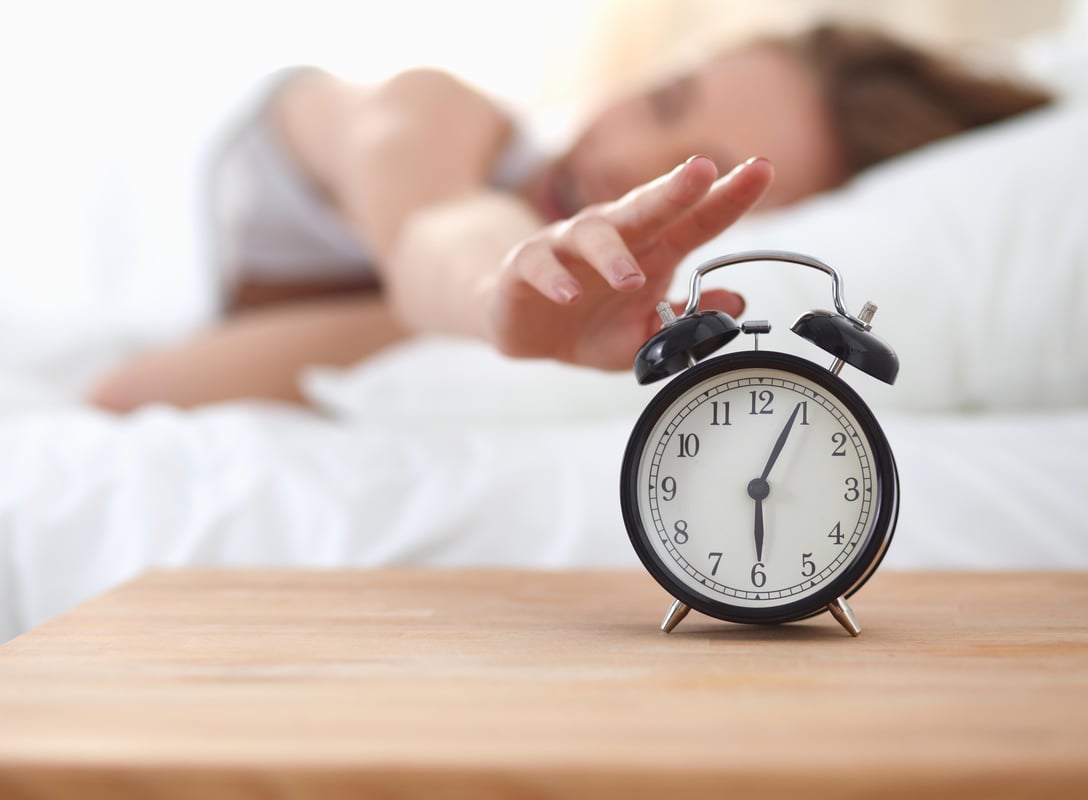Clocks ‘Fall Back’ on Sunday: Sleep Expert Offers Tips to Adjust

SATURDAY, Nov. 5, 2022 (HealthDay News) -- It’s time for time to fall back an hour, but fortunately that change is more in line with humans’ circadian rhythm than springing forward.
This provides an opportunity for people to “fix” their circadian rhythm, that 24-hour body clock that regulates hormone release and temperature, said an expert from Baylor College of Medicine who offered some tips.
“While the end of daylight saving time in November disrupts the sleep cycle, ultimately it is more in alignment with our circadian rhythm,” said Dr. Annise Wilson, an assistant professor of medicine – pulmonary, critical care and sleep medicine at Baylor College of Medicine in Houston. “In addition to gaining an extra hour, there’s more light in the morning and it’s darker at night, so the time change in the fall is easier to adapt to than it is in the spring.”
For those who seek to fix their circadian rhythm to help improve mood disorders and reduce negative impacts on heart health, thinking skills and other bodily functions, start with keeping a consistent meal, exercise and sleep schedule throughout the week.
Also, prioritize morning light exposure, limit evening light exposure, and avoid caffeine and alcohol before bedtime.
If napping, stick to the early afternoon and nap for no longer than 20 minutes, Wilson advised. Try to shift your bedtime 15 to 30 minutes later a few days prior to the end of daylight saving time, and wake up 15 to 30 minutes later on those days.
“It may take up to a week to adjust to the time change. The end of daylight saving time does allow us to catch up on sleep debt. It is recommended that we get seven to nine hours of sleep each night,” Wilson said in a college news release. “The key to maintaining a healthy circadian rhythm is a consistent routine.”
Shift workers, especially those who work overnight, often feel the effects of a disrupted circadian rhythm, which leads to a higher risk of obesity, diabetes, mood disorders and cancer.
Certain strategies can be taken to readjust their circadian rhythm, Wilson noted.
“If the shift work is short-term, then on their off days shift workers can go about their regular routine and should normally adjust,” Wilson said. “If it is long-term, we recommend simulating nighttime when they go home in the mornings by wearing dark glasses and using blackout curtains. When returning to their shifts at night, shift workers should expose themselves to a lot of light at the beginning of the shift.”
Children are also sensitive to changes in sleep schedules, Wilson said, because they are still in developmental stages. Teens typically sleep later, so springing forward can exacerbate their sleep deprivation and negatively impact their development.
Parents can help create consistency in sleep schedules, mealtimes and sleep routines, Wilson suggested.
“By trying to force adolescents to go to sleep earlier than they normally would and having them wake up early to go to school and then factoring in daylight saving time, they've become chronically sleep-deprived,” Wilson said. “Being chronically sleep-deprived in a developing body is not ideal.”
More information
The U.S. Centers for Disease Control and Prevention has more on circadian rhythms.
SOURCE: Baylor College of Medicine, news release, Nov. 2, 2022
Related Posts
Diagnosis of Difficult-to-Diagnose Developmental Disorders Discussed
FRIDAY, April 14, 2023 (HealthDay News) -- Multimodal analysis of genome-wide...
Food Banks Save Needy Families Up to $1,000 Per Year
WEDNESDAY, Nov. 23, 2022 (HealthDay News) -- Millions of Americans will enjoy a...
Pfizer Restarts Production Plant in North Carolina Following Tornado Damage in July
TUESDAY, Sept. 26, 2023 (HealthDay News) -- A Pfizer plant that makes vital...
Pfizer Asks FDA for Emergency Approval of Its COVID Antiviral Pill
TUESDAY, Nov. 16, 2021 (HealthDay News) -- Pfizer announced Tuesday that it has...
